Courses
Visualization Courses
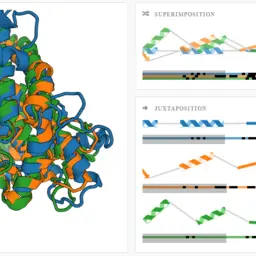
This course extends the knowledge of students in visualization by introducing the research in visualizations with applications in different domains. Students are informed about the main visualization research fields: information visualization, visual analytics, and scientific visualization. These fields will be demonstrated on real application scenarios from different fields – medical, molecular, security visualization, web-based scalable visualization, visual data science, machine learning in visualization, etc. These topics will be introduced by invited speakers – experts in these specific domains.
Within the seminars, students are accustomed to the whole visualization workflow: from familiarizing with the data domain and specifying user requirements, designing the corresponding visualizations and their implementation, to their final presentation.
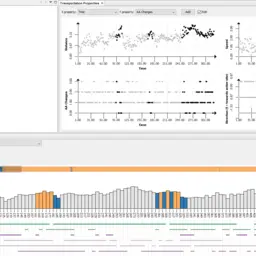
This course provides the students with an overview of the field of visualization and its basic principles and methods. The course includes basic concepts of visualization and typical preprocessing methods for the input data. Then, we introduce typical visualizations, based on the type and dimensionality of the input data. Students are acquainted with typical interaction techniques for data manipulation. An intrinsic part of this course is the practical exercise: within the seminars, the students get in touch with several visualization tools and libraries, which they use for designing and developing their own visualization project.
Computer Graphics Courses

This intermediate course covers more advanced topics in computer graphics. Students get an overview of the key issues and research trends in the computer graphics field. Within this course, the students will have to finish two complex programming assignments in order to get hands-on experience with the selected topics.

The purpose of this seminar is to practically implement selected topics presented in the M7130 course. Students will create a simple framework supporting the basic point-based operations, which will be further enhanced by the requested algorithms. As an outcome, students will gain practical experience with the implementation of advanced computational geometry applications, forming the basics of computer graphics.

This course focuses on studying and presenting the state-of-the-art, as well as the most recent research papers related to computer graphics and visualization. At the beginning of the semester, students will get the selection of research papers published at the top conferences on computer graphics and visualization, such as SIGGRAPH, SIGGRAPH Asia, EUROGRAPHICS, IEEE VIS, EG EuroVis, or similar. Based on their interest, students choose one research paper and then they individually look up a related “predecessor” paper. Then they prepare and give two presentations about these two papers. The goal of this course is to understand the concepts of exploring and conducting research in computer graphics and visualization and to practice reading and understanding academic texts.

The most advanced course on computer graphics. A short list of selected topics is discussed in depth on a theoretical level. After passing this course, the students will have in-depth understanding of some of the most important topics in the computer graphics field.
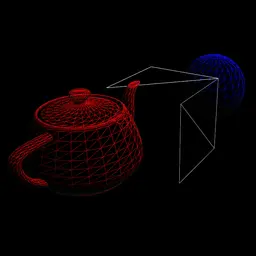
A basic course that covers the theory behind computer graphics, such as raster-based algorithms, transformation, projections, curves and surfaces, colors, 3D objects, and much more. Seminars are devoted to hands-on experience with programming of the most important computer graphics algorithms.

The course is aimed at the visual creativity informatics issues. Students gain theoretical knowledge as well as practical skills. At the end of this course, students should be able to understand principles of creative informatics art-works creation; interpret given visual art-work; design new art-works using available software; and design and implement aesthetically productive algorithms.
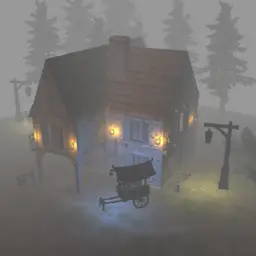
The goal of this course is to provide students with an overview of computer graphics programming interfaces. Within the seminars, the students gain practical knowledge of standard OpenGL Application Programming Interface and shader programming by working on an individual project (e.g., custom 3D scene or simple computer game).

This course aims to give an overview of the basic GPU programming methods and commonly used techniques with the focus on shader programming. Students will gain practical knowledge of GPU programming for rendering 3D scenes. After finishing this course, the students will be able to read and explain the function of the existing GLSL shaders as well as to design and implement their own GLSL shaders for various visual effects.
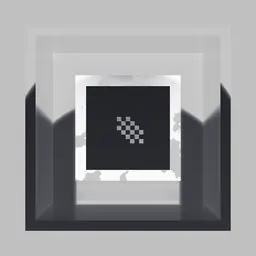
This course focuses on the creative potential of programming. The objective is to introduce the generative process as a creative tool for visual outcomes, so students will adopt them in their future projects.
At the beginning of the course the generative principles in creating are explained in the broader context of ruled-based art which was established in the era of conceptual art in the sixties and seventies. At that time also the first experiments with computer, video and image transition happened. Most of the semester students work on their projects individually or in teams. The assignments are very creative, students react on various subjects, they visualize their present mood for example. Students present their works and consult in groups and teachers. During the semester the Programming language Processing is explained.
The final project is the most complex, can be interactive or visualization of some data set, music, generation of some structures, etc. Final projects are presented at the exhibition situated at the foyer of the FI MU building. During the opening, anybody can try authorial applications.
See students' works at generativedesign.cz and Generative Design Exhibition - Autumn 2019.
Graphic Design Courses
Project Courses

This project-based course gives the students the opportunity to work on an individual project or participate in one of the currently running projects within the Human-Computer Interaction Laboratory or Visitlab. Students can enroll in this course repeatedly which enables them to establish a long-term collaboration with these labs. Within the HCI lab, students are working mainly on topics related to new forms of multimodal interaction based on virtual reality techniques. The work concentrates on algorithmic and system problems of computer graphics in general, interfaces, position detection, haptic feedback, and the interconnection of solutions into functional systems. In Visitlab, students can join one of the long-term projects, related to visualization of molecules (proteins, DNA), criminological data, geological phenomena, medical data, and options to explore them in virtual environments.